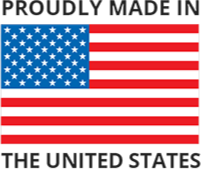
Sometimes too much information or products similarities can make selecting a kitchen counter material extremely difficult.
Use this brief comparison of four commonly used materials to counter your kitchen counter confusion:
Laminate Counters
Laminates are thin, lightweight low-cost materials made of compressed paper layers bonded with resin.
Pros: Laminate counters are available in hundreds of solid colors and patterns including designs that simulate the look and texture of natural granite or wood. Laminates quickly install on existing or wood substrate replacement counters, and although they have seams, some manufacturers offer visibly seamless ogee and bull nose counter edge options.
Cons: Laminate kitchen counters can scratch, chip, burn or stain. They can warp with exposure to high moisture and humidity, or melt with exposure to heat.
Granite
Granite usually refers to 100 percent natural high-grade stone quarried from different sites around the world.
Pros: Granite forms naturally in a wide array of colors and unique, visually appealing patterns. It is heat and scratch resistant, as well as stain-resistant if sealed. Granite countertops are highly valued and can increase the value of a home.
Cons: Granite kitchen counters can crack or chip, and color and grain inconsistencies can make them costly to repair or replace. Granite is porous must be sealed to prevent stains and discoloration. Granite counters can also have visible seams.
Corian
Corian countertops are affordable engineered solid surfaces made of natural minerals, pigments and acrylic.
Pros: Corian offers many solid color and pattern design options. Corian is non-porous and doesn’t require sealant or polishing. It is fade, stain, scratch and bacteria resistant. An expert installer can cut and install Corian to appear seamless.
Cons: Cutting food on Corian kitchen counters may scratch or dull them. Placing a hot pan directly on Corian can also cause damage. However, most damage done to Corian can be repaired.
Quartz
Quartz is an engineered stone material and is offered under various brands including Silestone, Cambria and Zodiaq. Quartz products are made of 93 percent natural quartz mixed with pigments and acrylic resin.
Pros: Quartz options are available in more than a hundred colors and patterns. Like Corian, Quartz products are non-porous and don’t require sealants or polishing to retain their luster. They are also scratch, chip, stain and bacteria resistant.
Cons: Quartz kitchen counters can crack if exposed to direct heat over long periods of time.





